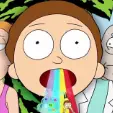Remembering My Own Private Idaho (1991) at this point, I think you will understand my feelings as well. Seeing Keanu Reeves shine in John Wick4, it makes sense to think of his very early work. It's hard for me to connect the scarred middle-aged man in John Wick with Reeves in this movie. In my memory, both his and River Phoenix's looks are stuck in their best days.

My Own Private Idaho (1991), is an early work by Gus Van Sant. The tone of the film is lonely and silent, and the death of Phoenix casts a lingering sadness over the film. The film mixes several elements typical of the classic genre, with Who Am I - Identity (Queer) as the tableau and Search - Redemption (Road Movie) as the nucleus, during the clash between wanderlust and civilization (Western), to tell a story with the autobiographical nature of Gus Van Sant that never existed. It makes you cry because we know that the desolate highway in the film never leads to a mother's embrace and because Phoenix does not stop searching until the end of his life.
This is the time for reminiscing. There is another interesting fact about this film actually: William Shakespeare is on the screenplay list. So, what does this movie have to do with Shakespeare? (Spoilers below)

River Phoenix, Keanu Reeves, Mike, Scott (left to right)
1- Character Relationship Correspondence
The main characters of the film are Mike and Scott, but in fact, the most crucial character of the film is not them, but the unassuming supporting character Bob, who is the axis of the film, linking the characters between the glamorous life of a cockney (Scott) and the life of a wanderer (Mike). This character is not original but comes from Shakespeare's classic image: Falstaff.
I don't think anyone can deny that Falstaff is the most successful comic character in Shakespeare's works. He is a knight in distress during the collapse of feudal society, both in and out of court to deal with the upper class, so we can see the complexity of the upper class, grudges, and endless fights; but also often in the lower class brothels and other places, to show us the overall look of society at the time.
So, how do Bob Pigeon and Sir John Falstaff correspond?

Falstaff is a well-known character in Shakespeare's plays, appearing in Henry IV (Parts 1-2) and The Merry Wives of Windsor, among others. Medieval knights sought loyalty, righteousness, and courage, but Falstaff abandoned all the chivalries. However, this abandonment is not entirely negative. He ignores the hypocrisy in chivalry and becomes more realistic, more like ordinary people. Thus, Falstaff is a typical example of both cowardice and lovability.
In the movie, Bob corresponds to Falstaff. Bob's character exists in contrast to the image of the hypocritical man (high society). Compared to the hypocrites, he abandons chivalry and hypocrisy (although also tainted with another kind of hypocrisy), and is, therefore, closer to actual people (the wanderer). There is a scene where the Rangers partied and shouted "Bob!" at Scott's father's funeral. In sharp contrast to it is the superficial and emotionally indifferent funeral of the upper class.
Falstaff is banished and dies in "Henry V". In the movie, Bob dies screaming "God", which is a good end. He is indeed a flawed man, but also a real man. He showed a certain spirit that the wanderers wanted to show but were afraid or unable to show. In a sense, we are all cowardly or incompetent people.

Speaking of Henry V, he has a counterpart to the character in the movie, Scott. In the film, Scott's counterpart is Henry V. He hangs out with Mike and the others before Favor dies. After his father's death, he was a different person. At this point, Bob saw him and wanted to get close to him, by the way, to pull him back into his gang. But Scott says, "I don't know who you're," which is a modern version of Henry V's original phrase, "I know thee not.
2- Main Plot Correspondence
My Own Private Idaho vs Henry IV main plot comparison:
- Mike (rescued while wandering) VS Ned Poins (helping out)
- Scott proposes robbery VS Ned Poins suggests robbery
- The target of the robbery is not an incensed man VS the target of the robbery is an incensed man
- Bob and Scott go together VS Falstaff scolds Prince for being cowardly
- Bob running away VS Falstaff running away
- The boss's wife praises Bob for going to heaven after his death VS The boss's wife is repeatedly cheated on by Falstaff
- Bob brags about himself VS Falstaff brags about himself
- Scott points out the flaw VS Harry points out the flaw
- Bob says he recognized him after the revelation VS Falstaff says he recognized him after the revelation
- The lion turns coward VS The lion turns coward
- Father and son interview VS King Henry's long talk with son
- Scott says he'll make it right VS Harry says he'll make it right
- Drugs stolen VS Pockets ripped out
- The police come to arrest the fat man VS Mistress Quickly begs the sheriff for help
- Bob is still on the street VS Falstaff eating at the Squire's house
- Bob on the street VS Falstaff waiting for King Henry on the road
- Getting close and calling him his son VS being intimate and calling him his son
- I don't know you, reprimand VS I don't know you, reprimand
- I will punish you severely for taking one step out of line VS I will punish you severely for taking one step out of line
- The pursuit of truth and the essence of self VS the advocacy of national unity and opposition to the war
- To criticize Scott's duplicity VS to praise Harry's political skills
- Negating Scott and exposing his cruelty VS affirming Harry and praising his intelligence and wisdom
- Affirming Bob, with the Rangers VS denying Falstaff, the comedic loser
3 - Some pieces

In the film, Mike travels to Italy in search of his mother, an event in real life, but in a symbolic sense, it is what is a person. A person's identity is, to a large extent, finding a sense of landing in the eyes of others. Normal (one of the keywords in this film) people may not imagine or realize that the lack of identity is extremely frightening and can cause people to lose the meaning of their lives, even to the point of death. For similar reasons, a person who has achieved fame and fortune may commit suicide.
The curved highway in the film is a symbol. It is a road with no end, symbolizing the uncertainty of meaning and life. The sense of hopelessness within the characters coincides with the endless roads. The smiley face is the meaning in the meaninglessness, the landing in the landlessness. Uncertainty is not always bad. Life should be a balanced relationship between certainty and uncertainty. Not everyone wants to live in a set pattern forever. Why do many teenagers long to wander? Because wandering is free, you can express your true self in wandering. But it is not enough to understand it in this way. In the film, there is both the positive meaning of uncertainty and its negative meaning.

Life in the upper class tends to be much the same while living at the bottom varies. It may be a prejudice, but the upper class wants the social structure to remain unchanged. The people at the bottom, on the other hand, seek change and reform, which is also indisputable. As a result, life at the bottom would be more colorful. Scott gets along with the wanderers because he is tired of the life of the upper class, and he pursues temporary change rather than eternal change. His quest is time-bound - he has to reform after 21.
However, today, Reeves is already in his fifties, a proper middle-aged man. If Scott were still around today, would he be able to understand that the real quest has no time because the quest itself is his state of life, that is, the way of life of a wanderer? Scott and Mike are two worlds, and so are Reeves and Phoenix.















 Junte-se ao debate!
Junte-se ao debate!


![[ACTION] 🥰 John Wick’s 12 Secret Rules- Something New before John Wick Chapter 4](https://img.peliplat.com/api/resize/v1?imagePath=peliplat/article/20230323/930b6de3dbf4711386b888e5701a3b7a.png&source=s3-peliplat&mode=FILL&width=720&height=340&limit=false)



![[LGBT+] 🧐 Como Shakespeare escreveu Garotos de Programa?](https://img.peliplat.com/api/resize/v1?imagePath=peliplat/article/20230413/246cacf11fd3625a6e5efff80fb2bd96.png&source=s3-peliplat&mode=FILL&width=720&height=340&limit=false)























